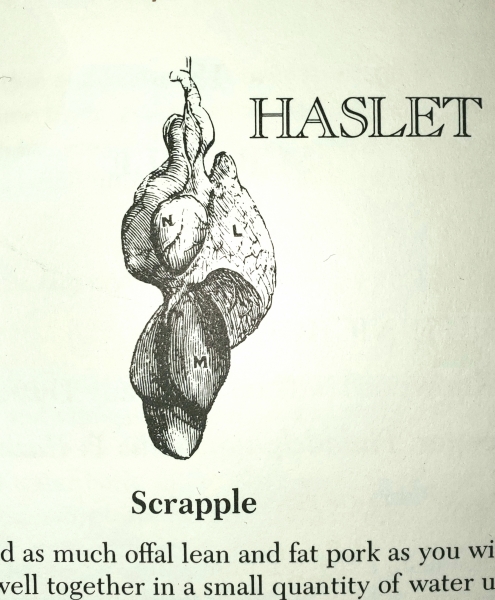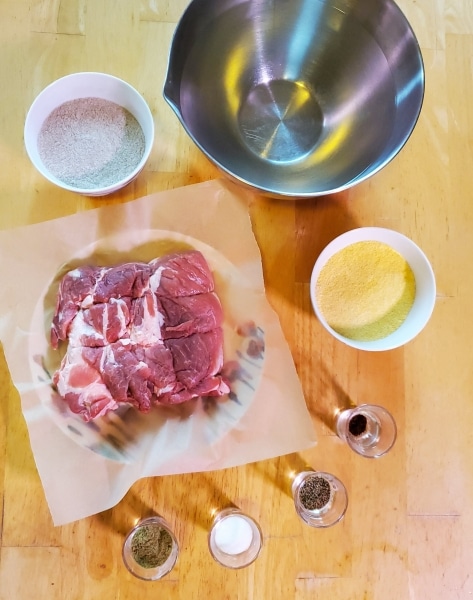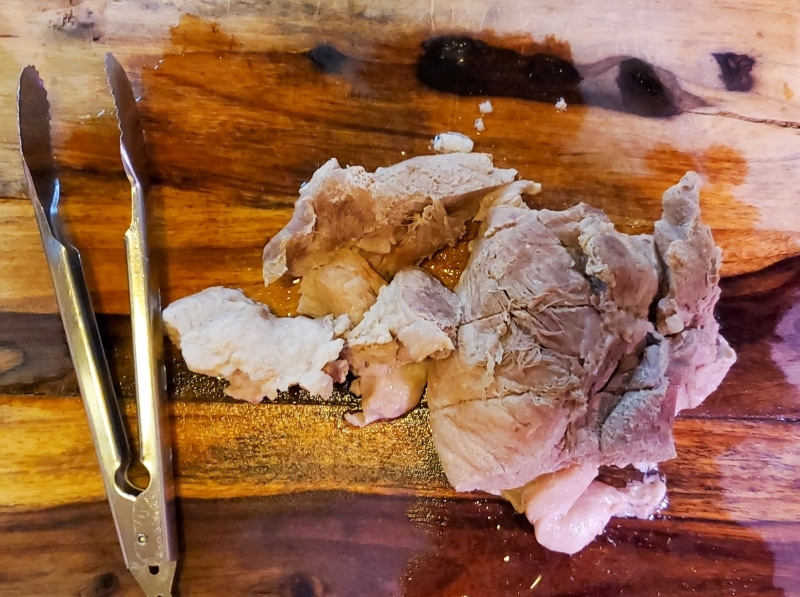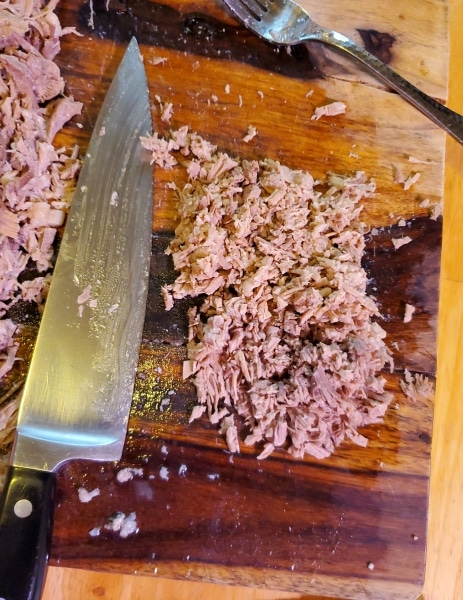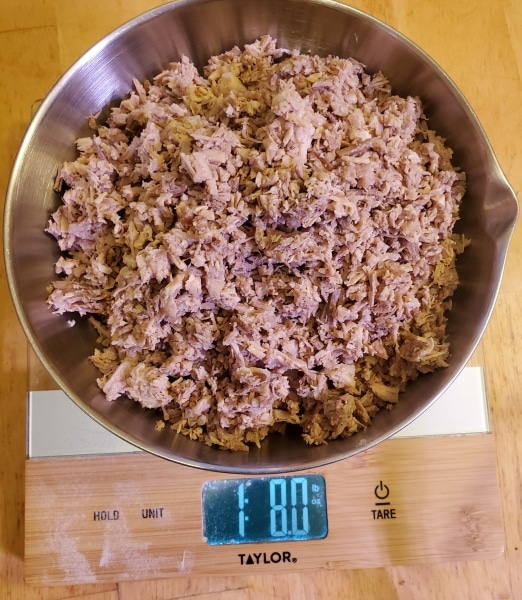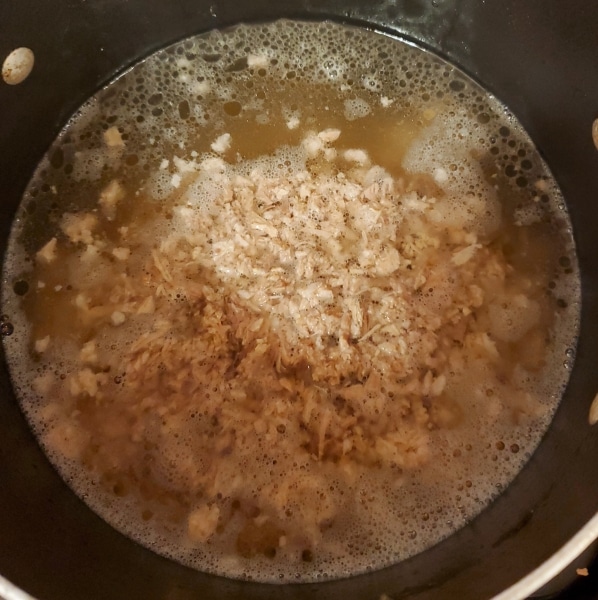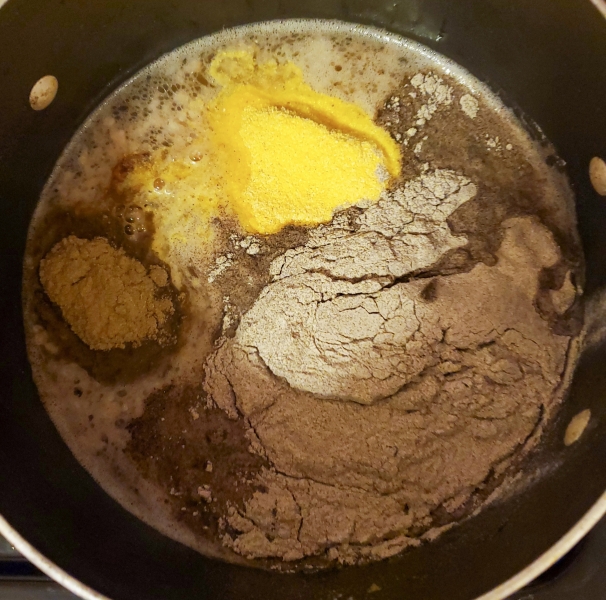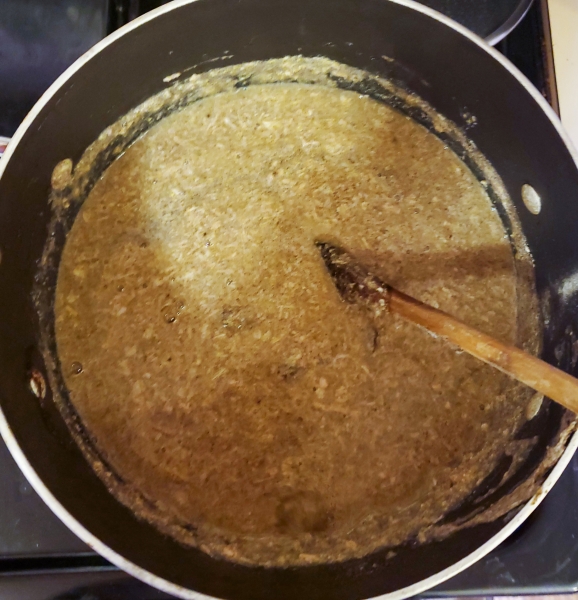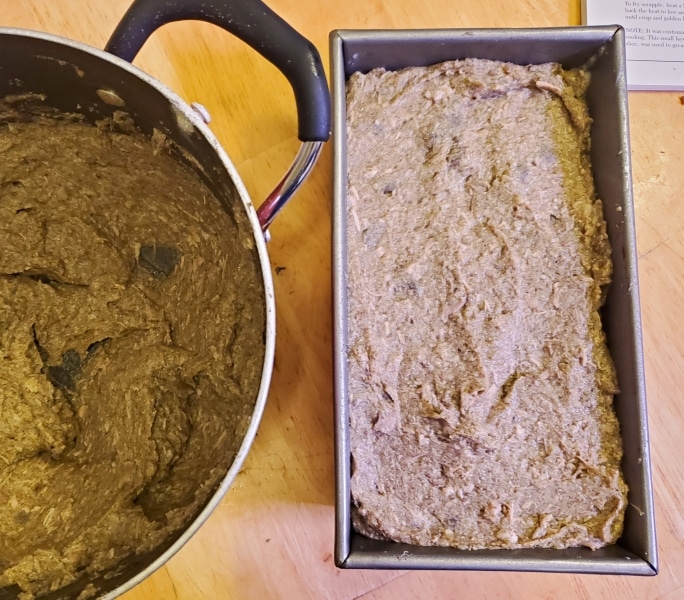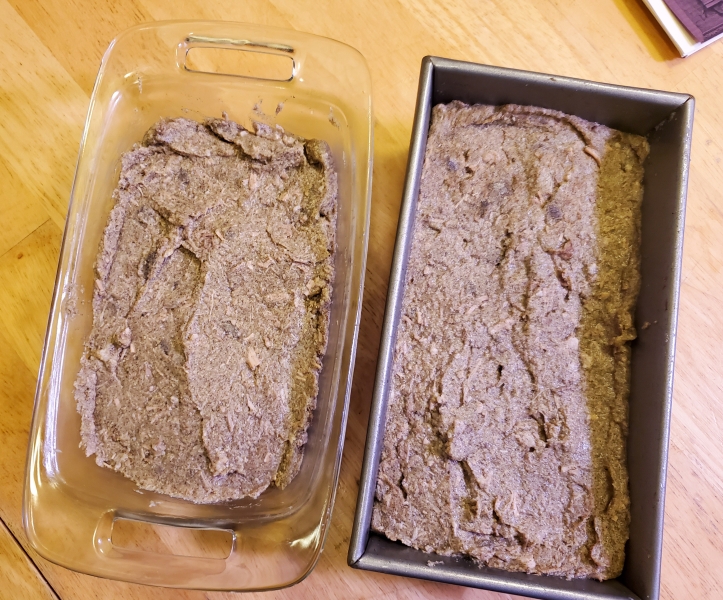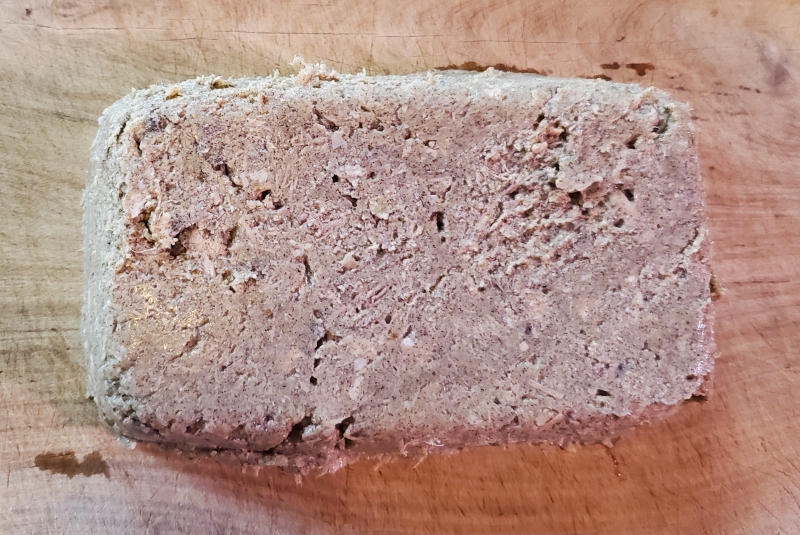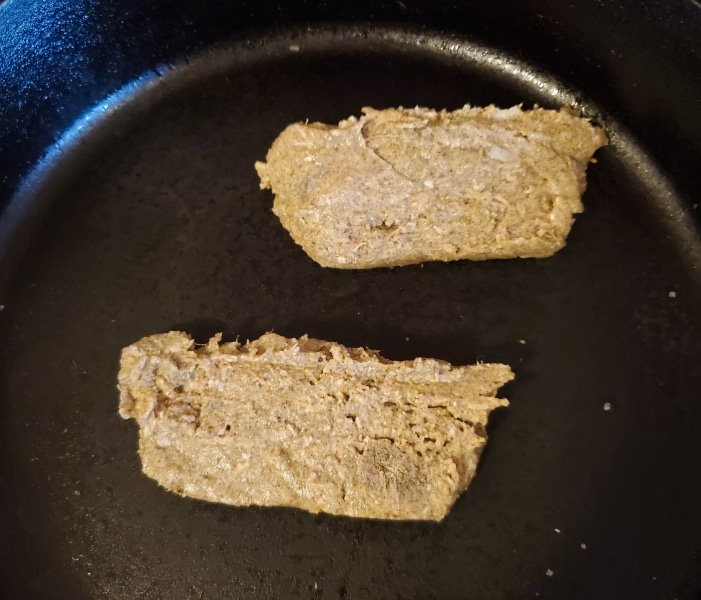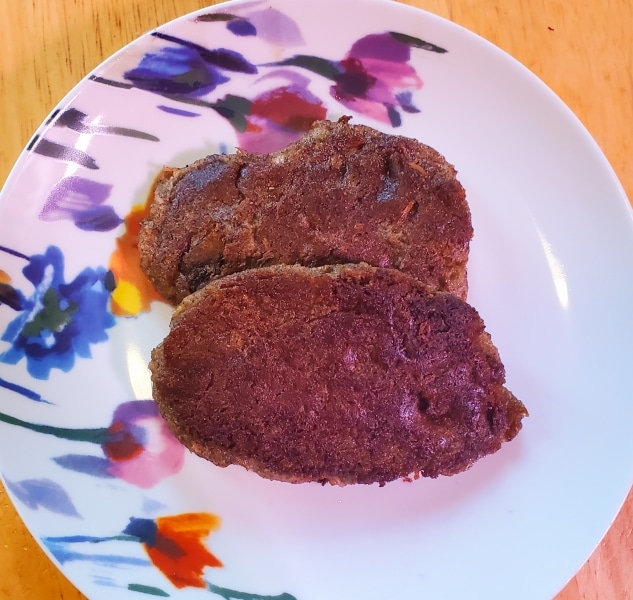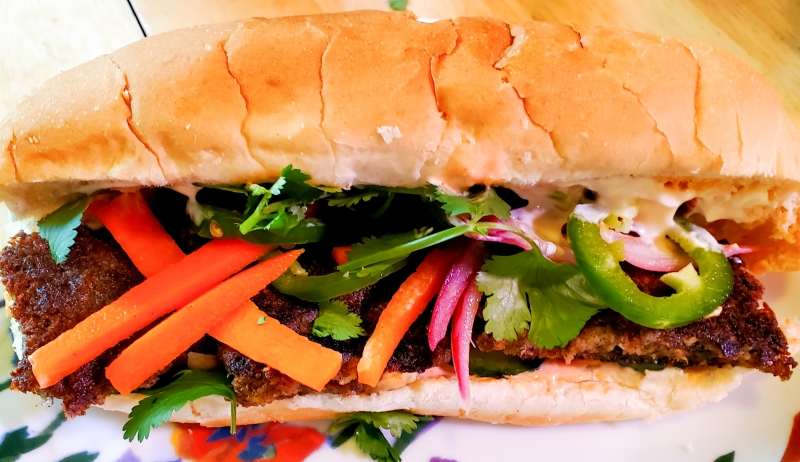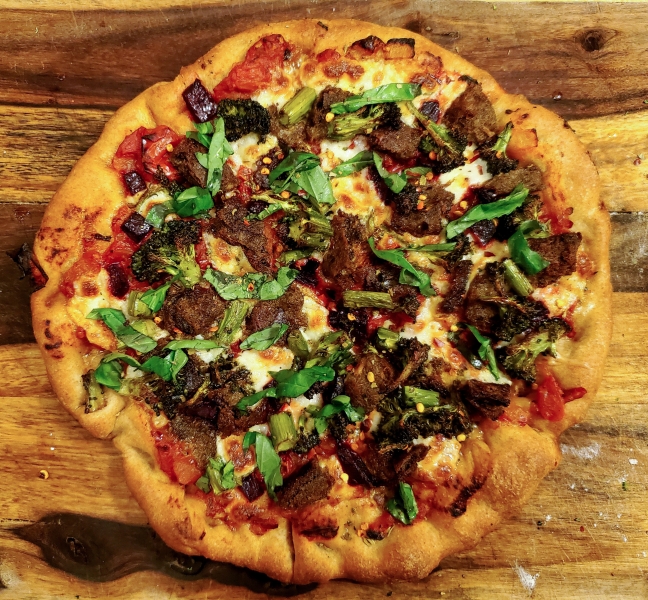Scrapple
Katie Maxwell, Visitor Services Coordinator
I have never eaten scrapple before. To be honest, I have never intended to eat scrapple. It never sounded particularly appetizing to me, but perhaps I have judged it too harshly. Let’s find out.
You can find the entry about scrapple on pages 53 and 54 of 35 Receipts from “The Larder Invaded” by William Woys Weaver. I will be using Dr. Weaver’s adaptation rather than the original 1856 recipe. I draw the line at offal.
Illustration from the top of page 54
Let’s get started. I’m ready for a challenge after the nice and easy Whipped Syllabub.
The Ingredients:
3 lb. fatty pork (no bones or gristle)
3 qt. water
1 ½ cups buckwheat flour
1 ½ cups parched cornmeal or yellow cornmeal
2 tsp. salt
1 ½ tsp. fresh ground pepper (or more to taste)
1 ½ tblsp. ground sage (or more to taste)
¼ tsp. ground cloves
I have no idea what parched cornmeal is, so I am using yellow cornmeal.
Simmer the meat in the water 3 ½ to 4 hours, or until tender.
The pork is now so tender, it is falling apart, and all of my pets just entered the kitchen.
Strain the broth and reduce it to two quarts.
My broth pictures didn’t turn out, but rest assured, I now have two quarts.
Grind the meat and any fat with it (half may be ground course, half fine).
I am choosing to interpret “grind” as “chop fine.”
Weigh out 2 lbs. of ground meat,
And I’ve run into a problem.
I only have 1 ½ lb of chopped meat. I started out with 3 lb of pork butt! At this point, reading ahead, Dr. Weaver mentions that when everything is being stirred together, “Additional water may be added if it thickens too quickly.” Maybe this will work out anyway?
Stir this into the broth.
It occurs to me that I probably should have removed some of the broth and set it aside. Too late now!
Add the cornmeal, buckwheat, salt, pepper, sage, and cloves,
And boil until thick. Stir often to keep the mixture smooth.
Well, the mix is thickening. Maybe this will turn out okay.
Additional water may be added if it thickens too much, but when it is ready for the molds, the scrapple should have the consistency of mashed potatoes.
I’m not sure about that mashed potato comparison, cement maybe.
Grease six 6-inch bread pans and pour the batter into it.
The second problem: I don’t have six 6-inch bread pans. Who has six bread pans? I do have two 5” x 9” inch pans.
Let this stand until cool, then refrigerate overnight. In the morning, turn the scrapple out,
I can’t say the night-time rest has made this dish look any more appetizing.
Slice and fry what is wanted, or slice and freeze.
The scrapple is very soft, even after resting overnight in the fridge. It comes out of the glass bread pan pretty easily, but needs more encouragement to come out of the metal pan. Interestingly, the scrapple from the glass pan slices fairly easily, but the loaf from the metal pan is so mushy, that I have to shape globs of scrapple into slices with the flat of my knife. My admittedly uninformed opinion of scrapple has not changed so far. I place all but two of the “slices” between pieces of parchment paper and freeze.
To fry scrapple, heat a heavy iron skillet or frying pan
Hey, I actually have one of those!
over a high flame, then turn back the heat to low and lay the slices of scrapple in the pan.
Let it fry very slowly until crisp and golden brown; then turn it over and fry the other side.
The result is crispy on the outside, but the inside is pretty mushy. Is the inside supposed to be mushy? Not my favorite dish.
Of course now, I have several pounds of scrapple I need to figure out what to do with it. I can think of two solutions:
1. An approximation of banh mi with store-bought rolls and cucumber, cilantro, pickled vegetables, and jalapenos.
2. Pizza.
Fortunately, both of these scrapple delivery methods work. Pickled vegetables compliment the fatty flavor, and the sandwich altogether has a nice variety of textures, so the mushyness of the scrapple is not so noticeable. As for the pizza, well, it’s pizza. Need I say more?

